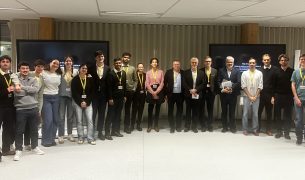In a delicate time when technological advancements leap forward at great speed, engineers find themselves more than just creators; they are guardians at the crossroads of innovation and ethics. The challenge of navigating moral dilemmas in the technological age is similar to walking a tightrope, where each step could tilt the balance between groundbreaking innovation and ethical responsibility.
By embracing ethical frameworks, engaging in meaningful dialogue, and innovating with conscience, young engineers can navigate the moral dilemmas of the technological age with integrity and confidence.
Inside The Ethical Compass Guiding Engineers
As one of the principal architects of tomorrow’s technology, engineers play a vital role in shaping the future. Yet, with great power comes great responsibility. Cliché, but true nonetheless. The decisions made on the drawing board or in front of a computer screen can have far-reaching implications, affecting society profoundly. How, then, can engineers ensure their creations serve the greater good?
Understanding the Impact: More Than Just Code and Circuits
Every technological artifact, from the most straightforward app to the most complex infrastructure system, carries with it ethical considerations. Engineers must first recognize the potential social, environmental, and political impact of their work to navigate these ethical waters. It’s about seeing beyond the blueprints and understanding the ripple effects of their creations.
Embracing Ethical Frameworks: A Moral GPS
Ethical frameworks provide engineers with principles and guidelines to make informed decisions. Whether adhering to professional codes of conduct or engaging in ethical reasoning exercises, these frameworks act as a moral GPS, guiding engineers through the murky waters of ethical dilemmas.
The Role of Engineers in Responsible Technology
In the technological age, engineers’ roles extend beyond designing and building; they are tasked with ensuring that technology is developed and deployed responsibly.
Engaging in Dialogue: The Power of Conversations
One of the most potent tools at an engineer’s disposal is dialogue. Engaging with peers, ethicists, and the public fosters a culture of ethical awareness and shared responsibility. These conversations can illuminate diverse perspectives, highlighting potential ethical pitfalls and pathways to responsible innovation.
Innovating with Conscience: Ethics as a Design Criterion
Incorporating ethical considerations into the design process from the outset can transform how technology is conceived and realized. Viewing ethics as an integral design criterion encourages engineers to innovate solutions that are technologically advanced, socially responsible, and sustainable.
Navigating Moral Dilemmas with Integrity
Navigating moral dilemmas in the technological age is no small feat. It requires a delicate balance between advancing technological frontiers and upholding ethical principles. But it’s a journey worth taking.
Continuous Ethical Education
Engineers must stay informed about emerging ethical issues and continue ethical education. Workshops, seminars, and courses on ethics in technology can help calibrate their ethical compass, ensuring they remain vigilant and prepared to face new challenges.
At the heart of ESILV Engineering School‘s curriculum lies a foundational commitment to the ethics of engineering, seamlessly integrating ethical considerations into every aspect of its programs. Recognizing the profound impact engineers have on society, ESILV prioritizes not just the imparting of technical knowledge and skills but also the cultivation of a deep-seated ethical awareness among its students.
Cultivating Ethical Leadership
Ethical leadership in engineering is about setting an example and lighting the way for others. It involves advocating for ethical practices, mentoring young engineers in ethical decision-making, and leading by example. Through ethical leadership, engineers can inspire a culture of integrity and responsibility.
It’s a journey that ensures the responsible use of technology and honours the noble profession of engineering, building a future that is not only technologically advanced but ethically sound and human-centred.



















